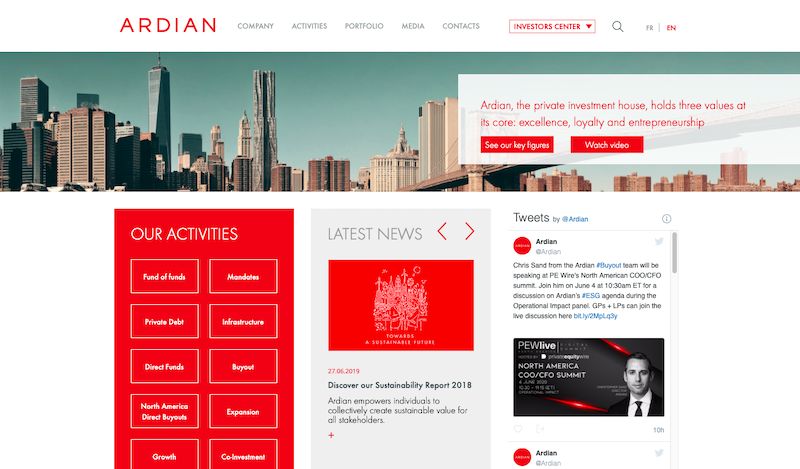Which is Your Area of Expertise as a Wealth Manager?
Should clients find insurance planners for insurance products? Should clients find a Fixed Income Trader for buying bonds – in which the Fixed Income Trader would likely only provide their trading services to institutions or Ultra High Net-worth clients.
This is where a Wealth Manager steps in – to provide holistic wealth management services to clients who have no clue to where to go to, who to look for, and making the difficult financial decisions.
Read More:
- The 6 people that make a Strong Wealth Management Team
- How do you Develop your Career as a Wealth Manager?
- Would you want to be a Wealth Manager or Financial Advisor for the rest of your life?
- 9 Reasons why you became a Wealth Manager or Financial Advisor
But Wealth Managers come from varying background with different expertise. So which is your area of expertise as a Wealth Manager?
No. 1 Budgeting & Financial Planning

An important basic financial plan is to help clients manage savings and cashflow. Be it a middle-income family or a ultra-wealthy client, overspending and insufficient financial planning would create potential financial mess for clients.
As a Wealth Manager, are you good in budgeting and financial planning? Are you able to plan cashflow for clients? Are you able to help clients go through uncertain times with their existing assets and income, through short-term loans, credit card lines or any available financial resources?
Is Budgeting & Financial Planning Your Expertise?
- Do you calculate if earned income is more than expenditure?
- Are savings sufficient for major expenses (wedding, housing, medical, education, travel, lifestyle)?
- Would there be savings for family building and retirement?
- Are there savings for sudden or unplanned expenses?
- Are there loans and credit lines available for clients?
No. 2 Insurance
For most clients, insurance is a necessity. Many are unable to afford a large sum of $50,000 to $200,000 of cash for medical expenses.
For wealthy clients, they may not want to spend $500,000 on medical bills in a private hospital when insurance coverage could offset such expenses.
For important income provider to family or key persons in companies, insurance on death, total permanent disability or critical illness could negate the financial liabilities, loss of potential income, leaving the emotional damages in a much better shape than having to worry about financial problems. Read More: What is an Insurance Specialist?
Are You the Insurance Expert?
- Do you know when is too much insurance or when is too little insurance coverage?
- Do you focus on savings and insurance at the same time, or purely to cover as much risks as possible through insurance?
- Do you have the tools to measure inefficient client’s expenses on insurance?
- Are premium or budget insurance plans better?
- Do you know when an insurance policy have unfair clauses against clients?
- Are you familiar with underwriting policies in different countries?
No. 3 Tax, Accounting & Legal

In many countries, individuals are required to do self-reporting on earned income from employment, interest income, dividends, stock gains, capital gains, gifts etc.
Tax is an opinion
Due to the complex tax system, especially when a client has earned income from various sources and jurisdiction, an accountant or tax advisor would be appointed to help the client to report the tax.
This becomes a professional opinion, ultimately impacting how much tax would be paid. Lawyers are close at hand too, to potentially advise on tax disputes with applicable tax authorities.
Read More:
- 5 Reasons why Wealth Management is harder in low-tax countries
- Panama Papers: Mossack Fonseca leak reveals elite’s tax havens
Are You the Expert in Tax:
- Which tax, accounting and legal framework are you familiar with?
- Do you know how to handle disputes?
- Are you ready to advise clients on tax disputes?
- Do you know how to optimise tax for clients?
- When is over-optimising could be a potential dispute with tax authorities?
- Is the local or clients’ tax structure too complex?
No. 4 Estate & Legacy Planning
With economic prosperity comes an increase in wealth and savings rate. Individuals have more savings and assets in their lifetime today.
This creates a large amount of assets or estate (term used upon death to replace assets) to be transferred to the beneficiary of choice, or otherwise, upon the relevant applicable legislation.
Estate & Legacy planning are important, especially in developed countries. The high cost of living could impact families severely, who are living or relying on the financial support of the individuals. It could be a situation of needing a large monthly cashflow to meet loan obligations and for regular expenditure, and much of the assets had been frozen due to the death of the joint-party.
Are You the Estate & Legacy Expert?
- Should estate planning start earlier or later?
- Should a will be written early and updated regularly?
- What is a worthwhile asset size before estate planning becomes important?
- What is the cost of estate planning?
- Will a will suffice?
- What if assets are around the world?
- What if assets have sensitive financial implications?
- What if there is complex family circumstances?
No. 5 Investments

Taking care of the basic financial needs in life is important. But hoping to grow their savings is perhaps a more important issue as inflation and investing for the future, might provide a larger wealth that could fund retirement or a better lifestyle.
Many clients sought investments in stocks, bonds, foreign exchange, unit trust, leverage trading, options, futures, alternative investments, real estate and unregulated investments to grow their wealth.
Read More:
- What is an Investment Advisor?
- What are the challenges of an Investment Advisor?
- What is the Value of Fund Managers for Wealth Managers?
- 7 Things To Do When You Meet People Who Are Better Than You In Finance and Investments?
Are You the Investment Expert?
- Which asset class is your area of expertise?
- Are you a protector, trader or investor of clients’ assets?
- Are you a financial thought leader or follower?
- Is it important for you to be right or for the portfolio to do well?
- Are you constantly performing above the benchmark or below benchmark? Is this important?
- Are you learning about investment or giving investment advice?
- Do you rely on Fund Managers and Chief Investment Officers’ advice, or your own?
- Do your clients’ trust your investment acumen or your investment execution ability?
No. 6 Banking
To manage finances, banks are an important platform for clients. Most savings are placed in the banks and when loans are required, banks are where most clients go to.
Since most transactions for savings, insurance, tax and investments go through a banking account, a banker is extremely important for clients.
When stocks in a brokerage account is sold or insurance policy matures, the money is usually returned to a bank account or in the form of a cheque, which subsequently would be banked into a bank account.
Read More:
- 14 Retail Banks Wealth Managers Can Join in Singapore
- The 6 people that make a Strong Wealth Management Team
- How do you find the right Private Bank?
Are You the Expert in Banking:
- Are you familiar with the many banking services?
- Are you good with deposits, loans, interest rates and foreign exchange?
- Are you expert in transactions and payments, T+1, T+2?
- Do you know London Close, New York Close?
- Do you know the banking credit policies?
- Do you know how capital adequacy in the bank could impact lending, stock price and trust of clients in your bank?
- Does your bank offers corporate and institutional banking services?
- Does your bank offers wealth management services?
No. 7 Asset & Risk Management

As wealth and investments increases, having more investments that results in diversification occurs. Clients would naturally have more asset variety, possibly including international assets such as foreign stocks, overseas real estate and luxury collections.
This also means the assets face increased risks due to foreign ownership laws and restrictions, international tax, capital controls, foreign exchange fluctuations etc.
Read More:
- 8 Reasons Why Low-Risks Portfolios Do Not Work Effectively in Asia
- 7 Important Risks to Manage for Clients
Are You the Asset & Risk Management Expert:
- Should client not invest because of increased risks?
- Should client structure their assets under companies?
- Would cost differs in various type of ownerships?
- What asset size is worthwhile before asset & risk management becomes efficient?
No. 8 Wealth Management
If you are familiar with No. 1 to No. 7, you would likely be the leading Wealth Manager in the industry:
- Budgeting & Financial Planning
- Insurance
- Tax, Accounting & Legal
- Estate & Legacy Planning
- Investment
- Banking
- Asset & Risk Management
But what is Wealth Management?
- Is it to protect clients’ assets?
- Is it to grow clients’ assets?
- Is it to transfer clients’ assets?
- Is it to preserve clients’ assets?
- Or is Wealth Management a premium service or premium advice?
For clients, their thoughts would be fairly simple: If you could grow their assets at 20% p.a. above benchmark, there isn’t much reason to protect or preserve their wealth. This is almost practically impossible, at least for most clients.
As Wealth Management had always been a wealthy business, clients are naturally great at creating wealth, accessing only wealth management services to protect, preserve and transfer their wealth. As investment infrastructure had been built-up over time, the same services are now offered to many wealth management clients.
Are You the Wealth Management Expert:
- What is your objective of advice for clients?
- Are clients’ viewpoint or your viewpoints more important?
- Would you graduate to only provide advice to the wealthiest?
- If there is a disagreement of advice in-house, what would you do?
- Are you able to command a higher fee because of your better professional wealth advice?
No. 9 Trust & Foundation

If you are providing advice to the High Net-worth and Ultra High Net-worth, you would be familiar with Trust and Foundation services.
Trust and Foundation helps to serve specific purposes’ of clients’ wishes in an organised and structured vehicle. It is usually created to manage risks and to execute specific instructions through a sustainable operating structure.
Are You the Trust & Foundation expert?
- Will the Trust & Foundation stand the test of regulatory and legal changes?
- What are the ways to mitigate such risks?
- Would increasing transparency and disclosure complicate the sustainability of the intended setup?
No. 10 Relationships and Trust
The last and most critical skills of all Wealth Managers are Relationships and Trust. Successful Wealth Managers managed to develop strong relationships and trusts with clients.
Read More:
- What does a Relationship Manager Do?
- What is a Relationship Manager?
- Reality Check I : So you got your new job as a Relationship Manager. What is next?
- Reality Check II: So you got your new job as a Relationship Manager. What is next?
- Top 2 Products to build a Strong Relationship with Clients in Retail Banking
With wealthy clients, Wealth Managers are usually with them for 10, 20 or their entire life. They know so about client’s family and financial status that they build a strong bond and relationship, they naturally become the first person to talk to for financial problems or any major decisions in life.
Are You the Relationship and Trust Expert?
- How do you build relationship and trust?
- How much of client’s family and financial affairs should you know?
- When should you advise and when should you step away?
- How do you navigate through crisis?
- Do you commit mistakes?
- How do you resolve it?
Related: Where Should You Practice as a Wealth Manager?
Read More:
- 5 Reasons why being a Wealth Manager is one of the Best Job to be in
- 10 Dangers Wealth Managers Face in their Career
- 7 Secrets how the Old Rich Achieve Success with Wealth Managers
- 8 Reasons why customers don’t understand the value of Wealth Managers
Related Articles:
- How do you Develop your Career as a Wealth Manager?
- Would you want to be a Wealth Manager or Financial Advisor for the rest of your life?
- 9 Reasons why you became a Wealth Manager or Financial Advisor
- 5 Reasons why being a Wealth Manager is one of the Best Job to be in
- 10 Dangers Wealth Managers Face in their Career
- 7 Secrets how the Old Rich Achieve Success with Wealth Managers
- 8 Reasons why customers don’t understand the value of Wealth Managers
Sign Up / Register
Caproasia Users
- Manage $20 million to $3 billion of assets
- Invest $3 million to $300 million
- Advise institutions, billionaires, UHNWs & HNWs
Caproasia Platforms | 11,000 Investors & Advisors
- Caproasia.com
- Caproasia Access
- Caproasia Events
- The Financial Centre | Find Services
- Membership
- Family Office Circle
- Professional Investor Circle
- Investor Relations Network
Monthly Roundtable & Networking
Family Office Programs
The 2025 Investment Day
- March - Hong Kong
- March - Singapore
- July - Hong Kong
- July - Singapore
- Sept- Hong Kong
- Sept - Singapore
- Oct- Hong Kong
- Nov - Singapore
- Visit: The Investment Day | Register: Click here
Caproasia Summits
- The Institutional Investor Summit
- The Investment / Alternatives Summit
- The Private Wealth Summit
- The Family Office Summit
- The CEO & Entrepreneur Summit
- The Capital Markets Summit
- The ESG / Sustainable Investment Summit










































